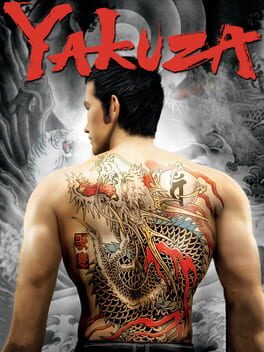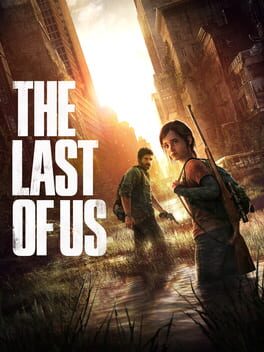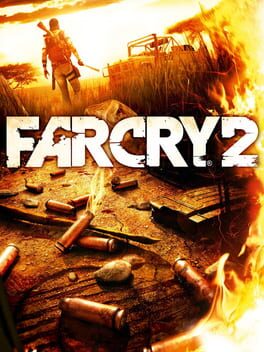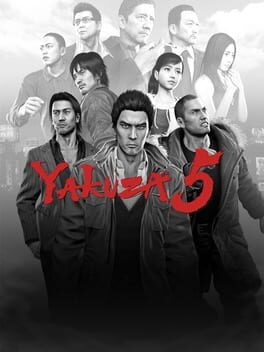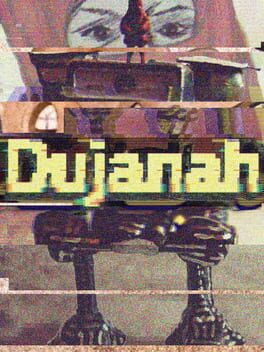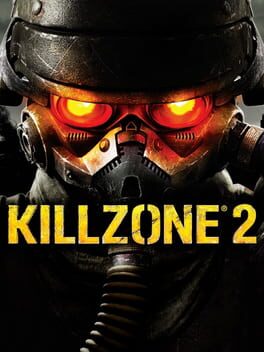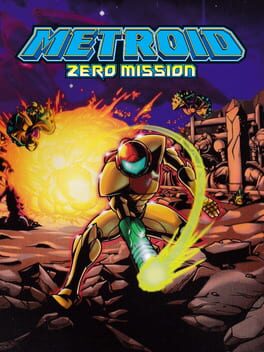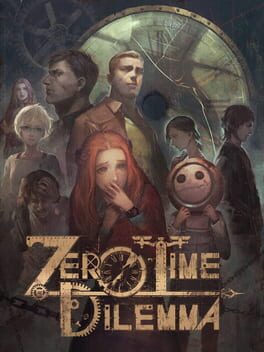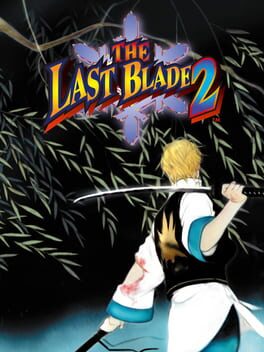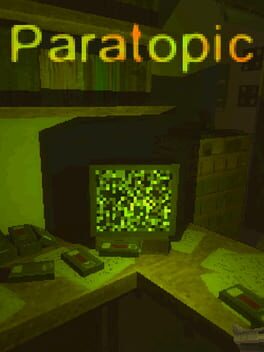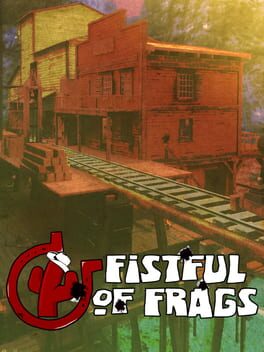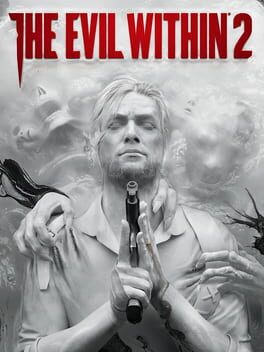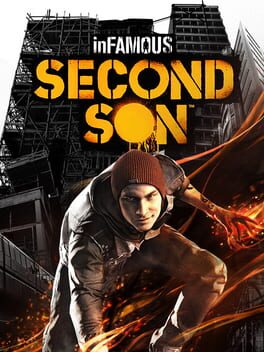KB0
2005
i'll cut to the chase and spare you some prose and witticisms you'll read either through glazed eyes or gritted teeth: six and a half years ago i was in a real bad way and i wasnt enjoying a single one of my hobbies the way i had used to. i had made plans to try to get into this series from its inciting incident just to have something to do that day, and it was around that time that yakuza 5 was serendipitously announced for localization, an unprecedented miracle that blindsided its then-largely isolationist and niche fanbase. felt like a sign, to me - i was playing this game the very next day, and within four months had completed all hitherto localized titles in the franchise, eagerly anticipating the fifth game. i was having fun with games again.
since then the series has received widespread recognition, often for better or worse (usually for very cynical reasons, attracting a specific kind of crowd that i would like to stay very, very far away from, and yet still needlessly spurring on several inane culture wars because no one knows how to react to media with good sense, tact, or nuance anymore) but im still here playing this franchise for reasons im not sure i'll ever be able to adequately articulate. and despite all this - this is the entry i return to the most. it's a kind of ritual homecoming. certainly, yakuza 2 is the more refined title. it's a successor which embraces its cinematic lineage and nagoshis directorial flavourings; it is pulpy and jettisons any sense of restraint, it sports a combat system arguably better than the roughness of its predecessor, it is more cognizant of how to utilize its living and breathing world and array of denizens to capture the frivolities of the human experience. but it's also the establishment of something formulaic, a pattern. a mold for a franchise aided by the careful supervision of fan-feedback and by the business acumen necessary to pilot an initiative that transformed yakuza into a yearly asset-flip series (this is undoubtedly in addition to a shitton of crunch. there is no doubt in my heart that y2 worked its employees to the bone.)
when so many of yakuza and yakuza 2s strengths in atmosphere and design tend to overlap, it's not hard to see why im kind of enamored with the guts this specific project displayed in a way that yakuza 2 does not. and when looking at the overarching path the series has taken - in which entries felt increasingly hurried and fraught until learning to respect restraint in 0 - this becomes especially clear. it's bold, it's risky - researching it, it becomes clear that it required a lot of attitude, finesse, trust, and collaboration to see a unique vision like this to the end and there are still flashes of that experimental tendency to be found in this specific entry. i love how punishing the games central heat mechanic is because it forces you to expend it desperately which often resulted in greater xp gain, i love how abilities are often tied to exploration, i love the overhead camera angles of this gritty and noirish red light district as opposed to the bog-standard third-person view the rest of the series employs, i love how its heat actions are absolutely brutal but orchestrated around brevity so as not to interrupt the flow of combat (something which later entries completely miss the point of), i love how its perhaps the only yakuza that doesnt necessarily characterize kiryu as a rogue paladin or a saint, i love that the substories are all grunt-work, assisting normal-ass people who often dont have much vested interest in you, the player, or kiryu, the supposed paragon of humanity, i love that there are cursory glances of what the series could have become in its structure had it not been turned into an asset-flip series, hell i even love the awkward english dub which tried to endear itself to the cult of rockstar and GTA. it's not very good, but much of that is attributable to script rewrites and voice acting direction as opposed to the fault of the actors themselves, and even at its very worst it is infinitely preferable to parse when contrasted against some localization decisions in the recent remastered collection which, at least at launch, frustratingly changed instances of dialogue in substories to include insular online lingo as the punchline. these are minimal in number, but they tie into what i stated earlier about how i fear this series is perceived, and it's often not in a very sincere or affectionate way. say what you will about the english dub wherein kiryu uses a slur or two, but he actually sounds like a former gangster, at the very least. keep in mind that i'm more than a little bitter that impassioned fans could not get people to play this series, but a single screenshot of a chicken did, no doubt influencing the direction of marketing, teaching profit-driven suits the value of the snapshot and altering franchise perception for the rest of time.
and while the series has continued to take risks, trying their hands at ideas various other studios would never consider because of RGG Studio's unique developmental approach (spin-offs as experimental grace periods developed for reprieve or to test new technology, each mainline entry's narrative being set in the year in which it was released, a greater than the sum of its parts design approach largely centered around content density), no title has ever been as uncompromising experimental as this one. its janky and its rough, but its unapologetic and totally committed - that's why im such an ardent fan, and probably at least subconsciously why i return every now and again. helps that 'tis the season, and it's a peak christmas game too.
in fact, even with the series transitioning to the turn-based genre, when so much of the post-0 output is so utterly reliant on incessant callbacks and fanservice relating to that one moment the western discovered this franchise existed in 2017, i'd without hesitation wager it still hasn't been anywhere near as risky as the first yakuza!
living with yakuza for as long as i have, learning the ins and outs of its development process, appreciating it from afar and growing to love this specific entry in retrospect has oddly enough honed my creative ability and imbued me with a sharper edge, a specific sense of what endears me to any given work. it's forced me to challenge convention and to be confident in conveying my thought process - to say with defiance that this is what i, singularly, admire and respect about a work. this is undeniably a strange and alienating response to have to a 2005 JRPG brawler laden in machismo, but stranger things have happened. that's the power of art as it relates to the individual, i'd say. goes without saying but if you havent gotten the picture from the tone of this review yet i think kiwami is awful
since then the series has received widespread recognition, often for better or worse (usually for very cynical reasons, attracting a specific kind of crowd that i would like to stay very, very far away from, and yet still needlessly spurring on several inane culture wars because no one knows how to react to media with good sense, tact, or nuance anymore) but im still here playing this franchise for reasons im not sure i'll ever be able to adequately articulate. and despite all this - this is the entry i return to the most. it's a kind of ritual homecoming. certainly, yakuza 2 is the more refined title. it's a successor which embraces its cinematic lineage and nagoshis directorial flavourings; it is pulpy and jettisons any sense of restraint, it sports a combat system arguably better than the roughness of its predecessor, it is more cognizant of how to utilize its living and breathing world and array of denizens to capture the frivolities of the human experience. but it's also the establishment of something formulaic, a pattern. a mold for a franchise aided by the careful supervision of fan-feedback and by the business acumen necessary to pilot an initiative that transformed yakuza into a yearly asset-flip series (this is undoubtedly in addition to a shitton of crunch. there is no doubt in my heart that y2 worked its employees to the bone.)
when so many of yakuza and yakuza 2s strengths in atmosphere and design tend to overlap, it's not hard to see why im kind of enamored with the guts this specific project displayed in a way that yakuza 2 does not. and when looking at the overarching path the series has taken - in which entries felt increasingly hurried and fraught until learning to respect restraint in 0 - this becomes especially clear. it's bold, it's risky - researching it, it becomes clear that it required a lot of attitude, finesse, trust, and collaboration to see a unique vision like this to the end and there are still flashes of that experimental tendency to be found in this specific entry. i love how punishing the games central heat mechanic is because it forces you to expend it desperately which often resulted in greater xp gain, i love how abilities are often tied to exploration, i love the overhead camera angles of this gritty and noirish red light district as opposed to the bog-standard third-person view the rest of the series employs, i love how its heat actions are absolutely brutal but orchestrated around brevity so as not to interrupt the flow of combat (something which later entries completely miss the point of), i love how its perhaps the only yakuza that doesnt necessarily characterize kiryu as a rogue paladin or a saint, i love that the substories are all grunt-work, assisting normal-ass people who often dont have much vested interest in you, the player, or kiryu, the supposed paragon of humanity, i love that there are cursory glances of what the series could have become in its structure had it not been turned into an asset-flip series, hell i even love the awkward english dub which tried to endear itself to the cult of rockstar and GTA. it's not very good, but much of that is attributable to script rewrites and voice acting direction as opposed to the fault of the actors themselves, and even at its very worst it is infinitely preferable to parse when contrasted against some localization decisions in the recent remastered collection which, at least at launch, frustratingly changed instances of dialogue in substories to include insular online lingo as the punchline. these are minimal in number, but they tie into what i stated earlier about how i fear this series is perceived, and it's often not in a very sincere or affectionate way. say what you will about the english dub wherein kiryu uses a slur or two, but he actually sounds like a former gangster, at the very least. keep in mind that i'm more than a little bitter that impassioned fans could not get people to play this series, but a single screenshot of a chicken did, no doubt influencing the direction of marketing, teaching profit-driven suits the value of the snapshot and altering franchise perception for the rest of time.
and while the series has continued to take risks, trying their hands at ideas various other studios would never consider because of RGG Studio's unique developmental approach (spin-offs as experimental grace periods developed for reprieve or to test new technology, each mainline entry's narrative being set in the year in which it was released, a greater than the sum of its parts design approach largely centered around content density), no title has ever been as uncompromising experimental as this one. its janky and its rough, but its unapologetic and totally committed - that's why im such an ardent fan, and probably at least subconsciously why i return every now and again. helps that 'tis the season, and it's a peak christmas game too.
in fact, even with the series transitioning to the turn-based genre, when so much of the post-0 output is so utterly reliant on incessant callbacks and fanservice relating to that one moment the western discovered this franchise existed in 2017, i'd without hesitation wager it still hasn't been anywhere near as risky as the first yakuza!
living with yakuza for as long as i have, learning the ins and outs of its development process, appreciating it from afar and growing to love this specific entry in retrospect has oddly enough honed my creative ability and imbued me with a sharper edge, a specific sense of what endears me to any given work. it's forced me to challenge convention and to be confident in conveying my thought process - to say with defiance that this is what i, singularly, admire and respect about a work. this is undeniably a strange and alienating response to have to a 2005 JRPG brawler laden in machismo, but stranger things have happened. that's the power of art as it relates to the individual, i'd say. goes without saying but if you havent gotten the picture from the tone of this review yet i think kiwami is awful
2013
looking back to the miserable state of the games industry in the seventh generation, i have to say that the feverish cries to find the citizen kane of gaming - basically paltry, philistine shorthand for the holy grail of the medium, a work that legitimizes the practice and is enshrined in the canon - were super funny, not only because of the obvious nod to that works strengths with relation to filmmaking (which cant be replicated in games wholesale), but also way more specifically because that movie is the direct result of several contextual, social, and political factors that basically 100% mean games will literally never, ever get their own citizen kane. the last of us, for a time, was that 'citizen kane', in the eyes of many. which is insane because this title introduces literally nothing new in the AAA environ through either storytelling, mechanics, or structure (even when it was released it was patchwork pastiche of everything that came before it) and on top of that it was heavily corporate funded focus-tested prestige slush which in effect fully betrays the idea of this game being a ‘citizen kane’ type. a citizen kane of the medium would have to do more than be soulless and perfunctory interactivity Big Video Games decide for you has artistic merit - i'd even go one step further to say that if anything, Big Video Games would probably frown on the citizen kane of video games, similarly to how orson welles legacy was attacked and dismantled by hollywoods vanguard again and again, and again and again and again. it amuses me this is happening yet again with god of war but what can i say i guess it's tough being a sore winner
2008
...if anything, it's not punishing enough? currently struggling to make it much further in this game - wonderful environment and aesthetics, the gold standard for map usage in video games, tightly balanced player-defiant mechanics and intriguing metanarrative elements intertwine into anathema for the modern open world experience, and yet for every stroke of genius and for every emergent design decision there is there exists something equally repellent. learning that malaria is an obfuscated level up mechanic was the breaking point for me and the artifice only piled up from there. a genuine shame - during that brief illusory period where i felt every inconvenience to be true and every threat to be hazardous, the game shone like a diamond
2012
this one is completely disjointed and unhinged; at its core, past all the bloat, you can see what a sharper version of this title could have looked like, and that pervasive vision lingers in the foreground of all the games antics. but all the same you can feel the fervent passion of the development team in each minute of its runtime and their unrelenting, inelastic vow to push the bill and expand the scope of what is possible, sometimes unnecessarily. in all the ways that makes yakuza a titan it is fantastic, in all the ways it makes yakuza tiresome it is paramount. still some of the best side content in the series though, understands the core of what makes this franchise endearing with sniper precision
2015
2017
settling into dujanah after playing the honest and emotionally vulnerable beeswing, one might not be sure exactly what to expect from jack king-spooners follow-up kickstarter project; using this leverage and anticipation effectively he pulls a one-two punch on his audience
punch #1, the hitman's jab: players see king-spooner himself on a greenscreen in one of five randomized intros, where he coyly, maybe even smugly outright spells out one of five 'underlying meanings' of the whole game, ranging from catharsis, to death, to identity, existentialism, and so on and so forth. its an unexpected slice of metanarrative, but it foreshadows a great deal of the games tone and content
punch #2, the liver shot: players, not two minutes after, sit through one of the most incredibly grim and striking openings to a game ive ever seen, one that sets up the journey of muslim woman dujanah as her goal to find something takes her through arcades, dreams, punk bars, military bases, the lair of a technocrat, and caves full of spider people
it all makes for a fascinating tale. here's my issue: king-spooner's aesthetic tendencies are easily the titles strongest asset and simultaneously its undoing. king-spooner's vivid and living poetry, musings on death, his framing of little vignettes that reflect on the absurdities, mundanities, and quiet humanity inherent to life, the way the usage of clay is the fabric upon which all these elements are nestled...the way its a matryoshka doll of metatextual signals and messages - this, too, carries over from beeswing, in addition to the general structure, except this time you have to put up with some frankly not good metroidvania/shoot em up arcade games too
what i find less easy to stomach is the games general tone. i should have known from the moment the randomized intro kicked in, or perhaps when dujanahs steam description changed from an earnest description to 'apolitical' very suddenly, but this is a postmodern game that relishes in that metanarrative pool...a little too much. king-spooners randomized intros are telling the truth - the game is indeed about all those themes in fragments, allowing players to connect dots as they see fit, but its also a game with massive undercurrents of frustration, particularly artistic frustration but also frustrations with politics, the state of the world, this purgatory we all find ourselves trapped in, the ultimate questions awaiting us all at lifes end. this is where it loses me, because the game is let down by a few things for sure, but most particularly for me the level of absolute vitriolic bitterness on display here and the inclusion of dozens of author blemishes the game has is cynical to an absurdist extreme. in other words: there comes a point where something becomes a funnel purely for someones own frustration, someones own grievances. you might say, well that's all fiction, but dujanah crosses a line by moving away from beeswings brand of authenticity to a work that is not about reflecting the problems of a politically instable region, but about reflecting a westerners frustrations, sometimes particularly small-scale, petty, and insular...using the backdrop of such a conflict
this is such a difficult thing to articulate, so let me give you a couple of examples.
1.) enter a house in the games sprawling opening desert, and you'll find a console. interact with it, and video overlay of king-spooner playing a character operating the twitch stream as though they are playing dujanah begins to occupy the lower left-hand side of the screen. the character goes on a rambly, incoherent twitch-esque monologue, mispronouncing the games title, filling the void and dead air of your exploring with stream-of-consciousness musings on absolutely nothing ('what is this music...? ay that's quite a jammin' tune eh? palm tree...another palm tree...invisible wall...eh, what the fuck?! fuckin eh, fencepost...this is pure shite eh')
2.) for reasons, you have to spend about an hour, maybe an hour and a half playing through a very stiff and weakly designed metroidvania, taking you out the of the flow of dujanahs general exploration-based play and removing you from the strengths of its rich atmosphere and soundtrack. upon completion, talk to an npc in the arcade and he immediately waxes philosophic and pontificates on the possible meaning of everything in the game you played. king-spooner does well to guess at the player's mindstate in this case, but its an instance where he relishes in looking down on you
in his article for unwinnable, yussef cole points out that dujanah is marred by its treatment of the middle east as pastiche, and that it "chooses...to tell a story not about the middle east, but with it, and ultimately through it - leaving behind the personal, honest narratives that could have been far behind". this is a perspective that i fully endorse and find myself agreeing with, but its interesting that we have taken different routes to reach this conclusion. i would similarly agree with cole that beeswings greatest strength was its level of personality and intimacy, and in comparison dujanah bares its fangs at everything and nothing, which could be compelling if not for the degree to which the author blemishes the work with his own frustrations. textual transcript of a trump address plays, with audio of fuming, bellowing hogs permeating the event; an arcade game called pie or anus denotes some of king-spooners witty irreverence, to be sure, but can just as easily be interpreted as distaste if not disdain for the current games market; fake level-up screens give you fake skills like 'blame the left'
im stuck in a position where i will readily admit king-spooner is a fascinating creator, and the medium would be healthier with more artists like him, but i cannot so easily be a proponent for this title either. if i had to put everything i just wrote a different way, i would say this:
when dujanah, the muslim woman who experiences immense tragedy, voicelessly notes frustrations in her marriage relating to art and interpretation of said art at an art gallery, is that dujanah or king-spooner?
when dujanah vividly imagines what it would feel like to slaughter an entire american military base, is that dujanah or king-spooner?
when dujanah speaks for the last and can only with deep agony and through clenched teeth tell you that this mess of a world is a set-up, is that dujanah or king-spooner?
punch #1, the hitman's jab: players see king-spooner himself on a greenscreen in one of five randomized intros, where he coyly, maybe even smugly outright spells out one of five 'underlying meanings' of the whole game, ranging from catharsis, to death, to identity, existentialism, and so on and so forth. its an unexpected slice of metanarrative, but it foreshadows a great deal of the games tone and content
punch #2, the liver shot: players, not two minutes after, sit through one of the most incredibly grim and striking openings to a game ive ever seen, one that sets up the journey of muslim woman dujanah as her goal to find something takes her through arcades, dreams, punk bars, military bases, the lair of a technocrat, and caves full of spider people
it all makes for a fascinating tale. here's my issue: king-spooner's aesthetic tendencies are easily the titles strongest asset and simultaneously its undoing. king-spooner's vivid and living poetry, musings on death, his framing of little vignettes that reflect on the absurdities, mundanities, and quiet humanity inherent to life, the way the usage of clay is the fabric upon which all these elements are nestled...the way its a matryoshka doll of metatextual signals and messages - this, too, carries over from beeswing, in addition to the general structure, except this time you have to put up with some frankly not good metroidvania/shoot em up arcade games too
what i find less easy to stomach is the games general tone. i should have known from the moment the randomized intro kicked in, or perhaps when dujanahs steam description changed from an earnest description to 'apolitical' very suddenly, but this is a postmodern game that relishes in that metanarrative pool...a little too much. king-spooners randomized intros are telling the truth - the game is indeed about all those themes in fragments, allowing players to connect dots as they see fit, but its also a game with massive undercurrents of frustration, particularly artistic frustration but also frustrations with politics, the state of the world, this purgatory we all find ourselves trapped in, the ultimate questions awaiting us all at lifes end. this is where it loses me, because the game is let down by a few things for sure, but most particularly for me the level of absolute vitriolic bitterness on display here and the inclusion of dozens of author blemishes the game has is cynical to an absurdist extreme. in other words: there comes a point where something becomes a funnel purely for someones own frustration, someones own grievances. you might say, well that's all fiction, but dujanah crosses a line by moving away from beeswings brand of authenticity to a work that is not about reflecting the problems of a politically instable region, but about reflecting a westerners frustrations, sometimes particularly small-scale, petty, and insular...using the backdrop of such a conflict
this is such a difficult thing to articulate, so let me give you a couple of examples.
1.) enter a house in the games sprawling opening desert, and you'll find a console. interact with it, and video overlay of king-spooner playing a character operating the twitch stream as though they are playing dujanah begins to occupy the lower left-hand side of the screen. the character goes on a rambly, incoherent twitch-esque monologue, mispronouncing the games title, filling the void and dead air of your exploring with stream-of-consciousness musings on absolutely nothing ('what is this music...? ay that's quite a jammin' tune eh? palm tree...another palm tree...invisible wall...eh, what the fuck?! fuckin eh, fencepost...this is pure shite eh')
2.) for reasons, you have to spend about an hour, maybe an hour and a half playing through a very stiff and weakly designed metroidvania, taking you out the of the flow of dujanahs general exploration-based play and removing you from the strengths of its rich atmosphere and soundtrack. upon completion, talk to an npc in the arcade and he immediately waxes philosophic and pontificates on the possible meaning of everything in the game you played. king-spooner does well to guess at the player's mindstate in this case, but its an instance where he relishes in looking down on you
in his article for unwinnable, yussef cole points out that dujanah is marred by its treatment of the middle east as pastiche, and that it "chooses...to tell a story not about the middle east, but with it, and ultimately through it - leaving behind the personal, honest narratives that could have been far behind". this is a perspective that i fully endorse and find myself agreeing with, but its interesting that we have taken different routes to reach this conclusion. i would similarly agree with cole that beeswings greatest strength was its level of personality and intimacy, and in comparison dujanah bares its fangs at everything and nothing, which could be compelling if not for the degree to which the author blemishes the work with his own frustrations. textual transcript of a trump address plays, with audio of fuming, bellowing hogs permeating the event; an arcade game called pie or anus denotes some of king-spooners witty irreverence, to be sure, but can just as easily be interpreted as distaste if not disdain for the current games market; fake level-up screens give you fake skills like 'blame the left'
im stuck in a position where i will readily admit king-spooner is a fascinating creator, and the medium would be healthier with more artists like him, but i cannot so easily be a proponent for this title either. if i had to put everything i just wrote a different way, i would say this:
when dujanah, the muslim woman who experiences immense tragedy, voicelessly notes frustrations in her marriage relating to art and interpretation of said art at an art gallery, is that dujanah or king-spooner?
when dujanah vividly imagines what it would feel like to slaughter an entire american military base, is that dujanah or king-spooner?
when dujanah speaks for the last and can only with deep agony and through clenched teeth tell you that this mess of a world is a set-up, is that dujanah or king-spooner?
2009
as far as this particular lineage of call of duty-influenced single player first person shooter campaigns goes, killzone 2 is top of the line and is consistently underappreciated and devalued for it. machinegames scattershot efforts with the new wolfenstein saga could only dream of approaching this level of lumbering oppressiveness, this heavyweight orchestration of life and limb struggle with fearsome artillery that takes the drab grit and muddy colour palette common to the seventh generation of shooters and molds it into a bold statement. lightning in a bottle for an otherwise bad franchise, testament to the value of aesthetics in a shooter
zero mission feels neither here nor there to me, trapped in the dead center of two schools of design that are constantly capitulating to the other. it structurally reminds of fusion in its suggestive design but lacks the exploratory atmosphere of super. everything in zero mission feels sterile; it is not a culmination of but rather a reminder of what came before it. the spritework of fusion, perfectly attuned to that titles cold and impersonal circuitry running rampant alongside a biomechanical nightmare, cannot hope to replicate the uncanny loneliness of the original metroids subterranean freedive. and the decision to backpedal on the comic book art style, remnants of which still remain in the game, does away with the opportunity to mythologize samus' original fearless adventure, which could have lended a differing yet nonetheless genuine weight to the proceedings. instead it's a story retold, a greatest hits remix of a game with awkward and needless additions to the affair. neither a game about regaining control nor a dread inducing descent, all that's left is for zero mission to succeed on the merits of its systems. it can, but that's largely besides the point
1998
samurai shodown gamifies the tension and fears of the genre in its design, but the last blade gamifies the romanticism of the genre - it's a game about finding the dignity, beauty, and honor behind every clash of blades. contrasting with garou and third strike, LB2 is less about future anxiety and more explicitly and far more grimly about the end of an era, coloring its duels with an impossibly bittersweet atmosphere. its gorgeous romantic score, beautiful spritework, historical anachronisms, and diverse roster gives palpable life to the games proceedings and belies genuine conviction behind every landed strike. samurai shodown lets you believe in the fearlessness of its roster, but the last blade is all about the casts grace and elegance in their tumultuous world
2018
strongly edited and directed, with prominent usage of violent cuts and perspective shifts that contemporaries in the genre seem anxious to employ, paratopics surrealist venture into the depths of poverty, cityscapes hollowed out by industry, and transformative media is more than the sum of its parts and worth the price tag. love a game with top tier audio design
2007
classics in unbalanced source mod design. all you do is scream at your boys and then try to knock people flat on their ass because more difficult kills result in higher notoriety, which is the actual point value placing you at the top of the leaderboard. walk into a shot-up tavern expecting white knuckle duels where each bullet shot is a costly time expenditure and instead some drunk slurring 'pass the whiskey' starts playing the piano and with great poise dodges every one of your fired rounds just to get in your face and crush your windpipe. eat your heart out rdr2, this is the real wild west
2017
ive always felt the first evil within represented a pitifully directed attempt at something of a horror anthology, mikamis mythic final shot at a title that cobbled together the familiar imagery of his deific body of work with over a dozen new and incohesive ideas that ended up fitting together about as well as a broken jigsaw puzzle. it's one of the rawest disappointments in the medium; its successor replaces the originals dim and misguided attempts to foster a thrilling, psychological weight with a riproaring extravaganza through shattered suburbia and dingy back-alleys infected with competing egos and the subconscious. it's a modern title that perfectly replicates the tone and thrust of classic resident evil's brand of stark horror and schmaltzy optimism; if that doesn't appeal to you, i understand, but it's such a treat in modern gaming to be able to actively and sincerely cheer for a protagonists relatively unambitious goals and his raimi-esque awakening to fearlessness. ends up asking some unique questions of its own, too - just a really memorable package overall, one that i feel is way too easy to dismiss for some. in narrative structure it unabashedly wears resident evil 4 on its sleeve, too, and this is primarily worth mentioning because it's one of the few derivatives with the confidence to stand on its own and to not have me questioning if i should abandon all further engagement to go and replay resident evil 4 instead. its gameplay loop overextends its warm welcome but it is a surprisingly taut title until that point, and the open-district form led to some stirring surprises. removing mikami from the helm seemed like this burgeoning franchise's death knell, but in this instance it's a strong argument for allowing new talent to step in and try their hand at the craft
2014
one respectable trait of sucker punch's manifests through the primacy of play. in contrast to several other analogous high-profile western studios, SP constructs their worlds with an eye for tactile engagement, with the simple joys of robust maneuverability and responsive action superseding any lofty ambitions or claims to prestige. as the studio found themselves ensnared by the demands of seventh generation AAA gaming, it's this innate sense of play that carried them through two largely middling superhero titles - fully formed open worlds, dozens of collectibles leading to upgrades, binary morality designed to feign depth and enhance replayability, and so on are all cornerstones of the infamous franchise, but where other titles may snuff out their sense of play (ironically in service of the age-old game design adage of 'finding the fun') infamous, especially the first title, encouraged it. responsive platforming, scaling intricate vistas, grinding on rails to speed around town instead of relying on vehicles, a litany of 'stunts' that encouraged anarchic combat experimentation, a steady sense of progression against a perfunctory rogues gallery, and even the craven and utterly gamified triteness of its morality system all amounted to a title that, impossibly, added to more than the sum of its parts. any title with a morality system as exploitable as the first games does not demand interrogation but instead derision followed by acceptance - goodness measured by the act of repeatedly maiming and then healing empire citys impoverished denizens. when the narrative amounts to a simple twist, that you're working against yourself, the experience is neatly dovetailed in the most undeserving and undignified way, but one that lends to its charm quite nicely.
these aforementioned elements are what make second son not just disappointing, but staggeringly bad as it suffers not only from franchise fatigue (crushed under the weight of its bullet point list of Systems(tm) and Features(tm)) but from a complete and total lack of care or ambition. combat is a downgrade, progression takes a hit, all powers are not only comparable in their kits but also in the sense that they're designed for visual fidelity rather than in service of play...even leaving aside the utterly abysmal representation of indigenous communities in its writing this is one of the worst narratives of the eighth gen, one that seems to be constantly at odds with its mechanics and presentation. infamous was for better or worse focused entirely on the minutiae of the individual and extrapolating its base of mechanics wholesale to relay a narrative of systemic upheaval is arrogant, naive, and consistently contradictory, which are traits that inform the titles uniformly bad attempts at characterization which hardly seem worth getting into at length. delsin should serve as our lens into this world and he's never once afforded a nuanced or complicated perspective, slotting everything into extremist binaries that seem totally at odds with the concept of his character. the most frustrating element at play here is these same systems could find worth by interpolating SMT's hallmark law/chaos binary if the title had to operate in much the same way which could not only inject new life into the franchise but is in almost every way imaginable more sensible for the narrative on offer here. instead second son is the worst kind of game - creature comforts made to push hardware sales, not daring enough to imagine but instead preferring to con its playerbase into believing its paltry attempts at evolution, perfectly encapsulated by the title being set in sucker punchs hometown of seattle yet making no attempt whatsoever to represent indigenous communities sensibly
these aforementioned elements are what make second son not just disappointing, but staggeringly bad as it suffers not only from franchise fatigue (crushed under the weight of its bullet point list of Systems(tm) and Features(tm)) but from a complete and total lack of care or ambition. combat is a downgrade, progression takes a hit, all powers are not only comparable in their kits but also in the sense that they're designed for visual fidelity rather than in service of play...even leaving aside the utterly abysmal representation of indigenous communities in its writing this is one of the worst narratives of the eighth gen, one that seems to be constantly at odds with its mechanics and presentation. infamous was for better or worse focused entirely on the minutiae of the individual and extrapolating its base of mechanics wholesale to relay a narrative of systemic upheaval is arrogant, naive, and consistently contradictory, which are traits that inform the titles uniformly bad attempts at characterization which hardly seem worth getting into at length. delsin should serve as our lens into this world and he's never once afforded a nuanced or complicated perspective, slotting everything into extremist binaries that seem totally at odds with the concept of his character. the most frustrating element at play here is these same systems could find worth by interpolating SMT's hallmark law/chaos binary if the title had to operate in much the same way which could not only inject new life into the franchise but is in almost every way imaginable more sensible for the narrative on offer here. instead second son is the worst kind of game - creature comforts made to push hardware sales, not daring enough to imagine but instead preferring to con its playerbase into believing its paltry attempts at evolution, perfectly encapsulated by the title being set in sucker punchs hometown of seattle yet making no attempt whatsoever to represent indigenous communities sensibly
2003
